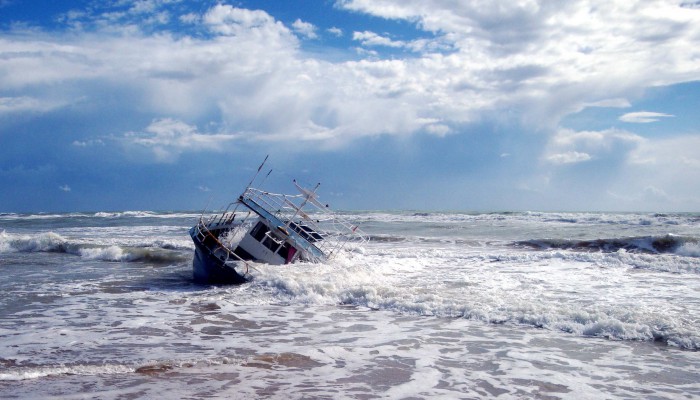Trauma, mental health and the fast track assessment caseload
On 18 October 2015 police found 30-year-old Khodayar Amini dead in his car in Dandenong Victoria.
Moments prior to taking his life, he made a call to two refugee advocates in Perth and said ‘I can’t stay, I can’t stay” and ‘the immigration is killing me’. A subsequent coronial inquest found finding was he had died from the effects of a self-inflicted fire.[1]
Khodayar Amini was one of a group of asylum seekers – numbering approximately 30,000 – who arrived in Australia by boat between August 2012 and December 2013. Many have been under significant psychological strain waiting over 6 years to have their refugees claims assessed under a new refugee status determination procedure known as ‘fast track assessment’.
Suicide is the leading cause of premature death for asylum seekers in Australia.[2] For those in the fast track assessment caseload there are reports of at least 13 suicides and many near misses. .
Researchers from the University of South Australia Mental Health and Suicide Prevention Group and Murdoch University have published on these recent suicide deaths in Australia. They contend that decreasing support services, ongoing uncertainty and barriers to legal support for processes[3] attendant upon refugee status determination contribute to deterioration in the mental health of asylum seekers, which can lead to self-harm and suicide.
Publications put forward a model of practical assistance and support for asylum seekers living in the community. Therapeutic engagement should be trauma-informed wherever possible, helping asylum seekers to reframe their sense of lethal hopelessness.[4]
The team has also been working on a project aimed at asylum seeker suicide prevention. The project, funded by a crowdfunding platform and non-government (NGO) sector fundraising is examining the impact of a two day targeted mental health and suicide prevention educational initiative for NGO caseworkers and counsellors supporting vulnerable refugees and asylum seekers as they progress through RSD processes in Australia.
As the training is specifically designed, it assists workers to integrate suicide assessment and management skills with the extraordinary circumstances and dilemmas experienced by asylum seekers.
To date, training has been conducted with approximately 400 NGO volunteers, caseworkers and counsellors across Australia. Researchers have gathered data from over 200 participants who completed the the two day Suicide Prevention Education and Safety Planning Program for People who Work with Asylum Seekers and Refugees. Each participated in the research evaluating the effectiveness of the training by completing survey questionnaires before and immediately after the training. Six month follow-up surveys and interviews are currently being conducted.
Results are yet to be published but preliminary analysis of the data from the research is promising, showing significant improvements on a number of self-reported critical outcome measures. The results indicate that on completion of the training, participants possessed more positive attitudes towards the assessment and management of suicide risk and suicidal individuals, increased confidence in identifying and managing suicide risk, and increased competence in responding to individuals experiencing suicidality.
Further to this aspect of the project, the group is conducting research with migration agents and lawyers on how they identify and manage mental distress of their clients. Initial surveys have been completed by over 40 participants and further evidence will be gathered through focus groups.
——–
Contributing authors & researchers:
Associate Professor Mary Anne Kenny, School of Law Murdoch University
Professor Nicholas Procter, Professor Chair of Mental Health Nursing, School of Nursing and Midwifery, University of South Australia
Professor Carol Grech, Head of School at the School of Nursing and Midwifery at the University of South Australia
Dr Miriam Posselt, Research Fellow, School of Nursing and Midwifery, University of South Australia
Dr Monika Ferguson, Lecturer, School of Nursing and Midwifery, University of South Australia
Dr Mark Loughhead, Lecturer: Lived Experience, School of Nursing and Midwifery, University of South Australia
——–
References
[1] Finding into death without inquest – Khodayar AMINI, COR2015 5275, Coronors Court of Victoria (10 July 2017)
[2] http://artsonline.monash.edu.au/thebordercrossingobservatory/researchoutputs/australian-border-deaths-database/
[3] Kenny, M. A., Procter, N., & Grech, C. (2016). Mental health and legal representation for asylum seekers in the ‘legacy caseload’. Cosmopolitan Civil Societies: An Interdisciplinary Journal, 8(2), 84-103.
[4] Procter, N. G., Kenny, M. A., Eaton, H., & Grech, C. (2018). Lethal hopelessness: Understanding and responding to asylum seeker distress and mental deterioration. International Journal of Mental Health Nursing, 27(1), 448-454
2 Responses
Leave a Reply
You must be logged in to post a comment.

Pingback : Thematic Focus: Mental Health – Pt. 1 – AnAttorney.com
Pingback : Thematic Focus: Mental Health – Pt. 3 (Legal/asylum context) – AnAttorney.com